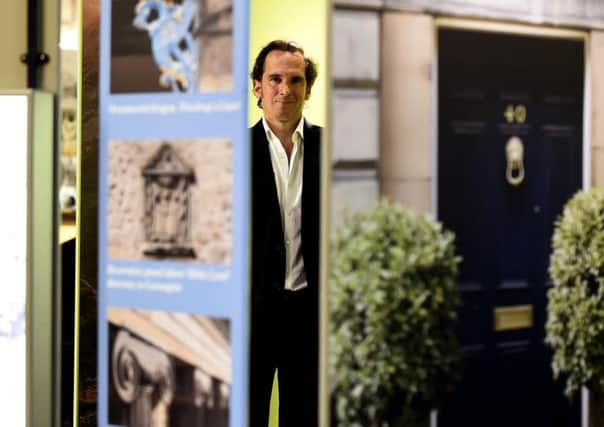Exhibition boost to campaign for more statues of Edinburgh women


A short film, High and Mighty, made for a new visitor centre and tourist attraction at the Tron Kirk, features a series of young people questioning the Capital’s legacy of largely honouring white men over the centuries.
The exhibition, which admits the city’s past involvement in the slave trade and the number of women wrongly accused of witchcraft, has been created to coincide with its reopening ahead of a multi-million pound revamp.
Advertisement
Hide AdAdvertisement
Hide AdIts displays, said to have been created to prompt “open and honest discussions,” highlight mounting concern about the decline of historic buildings and the quality of life of local residents due to the impact of pollution, new developments and online shopping.
Alicia Bruce, a photographer who documented the impact of Donald Trump’s Aberdeenshire golf course on residents, was commissioned to create a number of portraits of people living and working in modern-day Edinburgh for the displays.
The section on the city’s statues describes how they highlight many of Scotland’s most influential figures, but are believed by some to offer an “incomplete and outdated version of the past”.
In the short film, five young people recruited by Edinburgh World Heritage for the project give their verdicts.
Advertisement
Hide AdAdvertisement
Hide AdKit Guy, 20, states: “We feel no connection to the statues because, for the most part, we do not know why they are there.
“Though we are far below them physically we are also far ahead of them in terms of society’s values.”
Murid Laly, 20, said: “Look up to let a white man look down on you. Know your place, be at his feet.”
Polina Chizhova, 24, states: “I believe that there are many more inventors, political figures and others, men and women, who are awaiting their turn for public recognition.”
Advertisement
Hide AdAdvertisement
Hide AdOne of the most prominent landmarks on the Royal Mile since it was built in 1633, the Tron Kirk has fallen into decline since it was last used as a church in 1952.
It has been used sporadically as a tourist information centre, for markets and as a live music venue during the city’s major festivals.
Edinburgh World Heritage trust was awarded a three-year lease from the city council to take over the running of the Tron Kirk in February.
Edinburgh World Heritage director Adam Wilkinson said: “We set up a number of focus groups to try to understand what the city means to the people who live here, as without residents Edinburgh is just a museum.
Advertisement
Hide AdAdvertisement
Hide Ad“In doing that it has given us the chance to open up some areas of history which have not been widely discussed before. There has been a very set view of heritage in the past.
“One of things that came back from the young people we spoke to was that they wanted the right to discover Edinburgh’s heritage for themselves.
“It’s really valuable that they are in the exhibition. Their views will be far more powerful than dry text.”
